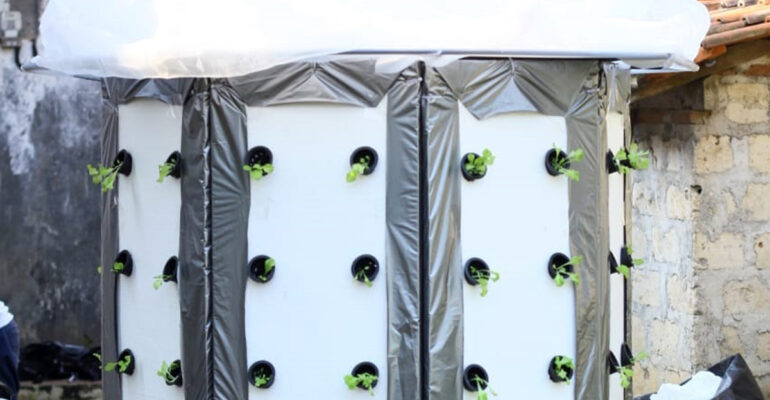Aerogreen, Today’s Urban Farming Solution

Indonesia as a country with a high population, adequate food availability must be fulfilled properly. However, fulfilling food needs in Indonesia still depends a lot on imported food products. One of the reasons is because local products are not sufficient for food. In addition, the amount of land used to grow local products is minimal, especially in urban areas. Therefore, the trend of urban farming or urban agriculture with narrow land is becoming a growing trend in the community.
Five IPB University students sparked the application of urban farming in an aeroponic form with a greenhouse. They consisted of Agung Maulana Furqon, Nur Khasan Fatoni, Hana Rafidah, Citra Ayu Dewanti, and Tangguh Ranggiyuwana Izza under the guidance of IPB University lecturers, Lilis Sucahyo, S.TP, M.Sc. The urban farming idea was proposed in the Student Creativity Program in Entrepreneurship (PKM-K) with the title "Aerogreen: Aeroponic Sales with Greenhouses for Urban Agriculture / Urban Farming".
"At present urban communities are trending to do hydroponic cultivation, but not followed by protection of hydroponic plants, so sometimes the plants are easily attacked by pests. Finally we made the idea of the problem by making a greenhouse without requiring large land, becoming an Aerogreen idea, "said Agung, Chairperson of the Aerogreen Team.
Aerogreen is arranged using an octagonal iron frame with a height of 170 centimeters which is covered by Styrofoam as a wall. The wall has 96 netpot as a place to cultivate vegetables. In order for plant nutrition to be fulfilled, a water pump and nutrients in the form of an Abmix solution are available within the framework. The installation is closed with a screen that serves to protect plants from pests and on the roof is covered with ultraviolet plastic so as not to rain.
The uniqueness of Aerogreen is its size that can be adjusted to the land area (customable), and is easily moved from one place to another (portable). In addition, the price of Aerogreen is more affordable, which is priced at Rp 2.5 million with 96 netpots compared to ordinary hydroponics or aeroponics with only 30 holes, but sold for around one million rupiah.
"With the presence of Aerogreen, if only one household has one installation, the health of vegetables consumed daily is more guaranteed because the vegetable cultivation can be treated and controlled by itself," concluded Agung. (RYS)


